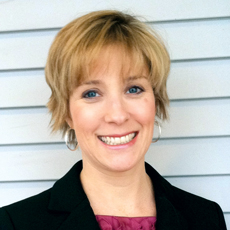
Finding a good consultant is easier said than done. You have a lot of choices and it’s a big commitment both in time and money. Sure, the rewards can be great — increased revenue, improved quality measures, improved clinical outcomes — but you could also find yourself 3 years into it with nothing to show.
How do you avoid this?A few simple steps and expectation setting from the start can help.
What should you expect from your consultant?
- A consultant should spend a good amount of time asking questions about your current processes, systems and the culture of your agency. We really need to understand what makes your agency work and where the areas of opportunity are. When your consultant suggests a change to one of these areas, don’t be afraid to present any barriers that you see to a successful implementation. The consultant has experience from many different systems and facilities and most likely can suggest another option that may work better for you. Your consultant should also tailor those recommendations based on the culture of your facility and where you are in the “change process”.
- Your consultant should not only help you identify issues but should help you implement systems to solve those issues. Consultants may advise you that there is potential to increase your upper RUG categories or your Part B caseload. The consultant you want will not only identify those opportunities but will sit with your therapists to show them how to do it.
- Most departments want to do a good job. They just lack the training to get it done. Your consultant should work with the team until they are able to achieve the metrics on their own.
- You should never feel like your consultant is only giving you pieces of information to make sure you have them back each month. Your consultant should provide you with as much information as your team can work with at any given time. A good consultant wants their clients to improve with each visit and eventually no longer need the consultant.
- Your consultant should understand your unique building. Recommendations should be individualized and meaningful to your team and the issues you face. Every building is unique with its staff, its patients and its processes. Recommendations for the facility down the street don’t necessarily work for you.
- Your report should be written in a way that is meaningful to you. Make sure the report is providing you with quality, not just quantity.
What do you need to do as the client to ensure a positive relationship with positive outcomes?
- Have your shared your priorities with your consultant? There may be several areas of opportunity in your facility but if your consultant knows where your primary focus is, you will have better outcomes.
- If your consultant provides suggestions and goals that you do not think are realistic or achievable at this time, share those concerns with your consultant. The goals can be modified in a way that is a better match for where you are in the change process. If you commit to something and later find that there are additional barriers not originally identified, don’t be afraid to call your consultant. They may have a suggestion to help you or they may need to change the focus of their next visit. Either way, the communication will improve your outcomes.
- Share the reports with appropriate team members. The reports include the consultants interpretation of the data gathered at your visit, which may be helpful to different departments.
- Provide feedback if your consultant is going in the wrong direction or if your staff is having a difficult time with a certain suggestion or change. Your consultant can’t change our approach if he or she doesn’t know.
- The exit meeting after a visit is a great opportunity for the consultant to teach and train your staff on best practices. If certain members of the team can’t be present, ask your consultant for a conference call exit. This will help you move forward with the suggestions.
As with any relationship, communication is key. Some issues can be resolved, some can’t. Don’t be afraid to make a change if necessary.
Melissa Reilly is a senior therapy consultant with Post Acute Consulting.



